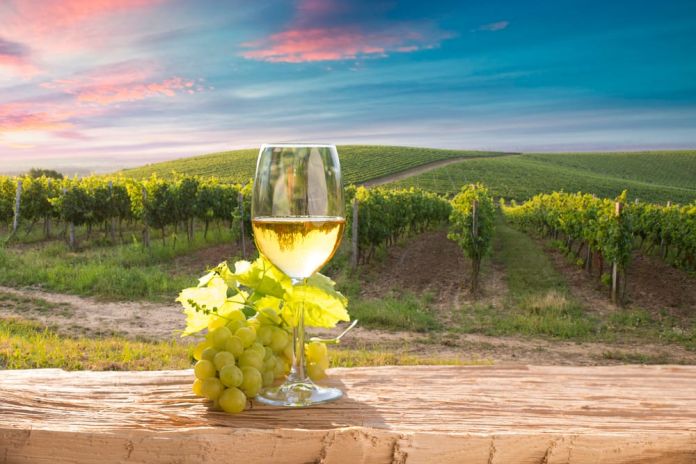By PYMNTS
It would certainly be understandable if Kimberly Scott considered herself a wine snob. After all, she has managed and held senior positions in the restaurant business for more than a decade. And she currently owns one of Boston’s most talked-about wine shops, snuggled in the North End. But that’s not how she rolls. Scott is a proud “wine human,” not a “wine snob.” Any concern about a lack of attitude that comes with the difference between snob and human — well, forget it.
Scott, as well as her shop, The Wine Bottega, is loaded with attitude, knowledge and a unique selection. The shop specializes in natural wine. For most people, that means wine without the sulfites, but that’s not the whole story. Natural wine, according to RawWine.com, is “farmed organically (biodynamically, using permaculture or the like) and made (or rather transformed) without adding or removing anything in the cellar. No additives or processing aids are used, and ‘intervention’ in the naturally occurring fermentation process is kept to a minimum. Neither fining nor (tight) filtration are used. The result is a living wine — wholesome and full of naturally occurring microbiology.”
For Scott, the move toward natural wine, which she has specialized in since she opened The Wine Bottega in 2016, is more of a rebellion against what she sees as the toxification of our environment. That’s part of the attitude described earlier. But it doesn’t come without a sense of humor, because according to Scott, not only is natural wine the right thing to do — it’s also “rad-as-hell” to drink.
“Yeah, I love it,” she tells PYMNTS. “ Yeah. I have a big sense of humor about natural wine hipsters. I have my own thing where I have been trying to take the best part of the natural wine movement and also try to push back against the things that are, you know, doing us a disservice. So we do try really hard. Obviously it’s fun to have things that people look for. Like, there’s all this like really overly expensive wine out there. And I say that because I worked in fine dining and I actually have a pretty interpretive view of price and value.”
She also has an interpretive view of what it takes to be a small business owner during a pandemic. She says the early days of the pandemic were marked by curbside pickup and limited at-home delivery. Sales were up because, as she says, people like to self-medicate, and lately they’ve settled back to something close to normal for a major city that sees an exodus for the beaches on weekends.
Scott’s take on eCommerce is as unique as the product she sells. First, wine sales online are limited by individual state regulations, and Massachusetts has some of the toughest. The Wine Bottega does have a wine club for which products are delivered locally. But she likes the personal touch. All of the wines in her shop have a story, she says. That story is best told through the in-store experience and is harder to tell with a postage stamp image and a few lines of text.
“We write custom notes for all the wines depending on all the different kinds of data that we can get or not get about each one,” she says. “We like to try to find as interesting a story as possible, where we may focus more on a regional tradition or more information about a variety, or we may focus more on the story of the winemaker. And then we also try to include obviously a little bit of a description of the wine. But we also love to say that the experience of wine is something that we established with our guests. There is no objective truth to wine. Our mouths are literally different. One person thinks cilantro tastes like dirt, so the other one thinks it tastes like a green bounty of goodness. Both of those experiences are true.”
That’s the kind of unpretentious attitude and category expertise that The Wine Bottega brings to the North End. It’s part of the rebellion against what Scott calls “performative wealth.” She doesn’t have much respect for the $500 t-shirt, the $500,000 Bugatti or the $50 bottle of wine that people buy for the label rather than the quality.
“Wine has, like, a bigger message in it that talks about the responsibility to our environment,” she says. “And I try not to joke about this, but I have to joke about this, I’m really tired of people trying to sell natural wine like a health food product. There’s a lot of online projects like that. They talk about keto-friendly and vegan, and they have this whole like lululemon vibe to them. I never saw natural wine as a health food product. I think it’s irresponsible to sell alcohol as a health food product. I hate that. What I do say is I sell you just one poison, the one you signed up for, which is alcohol, and I try not to poison anything else in the process.”





